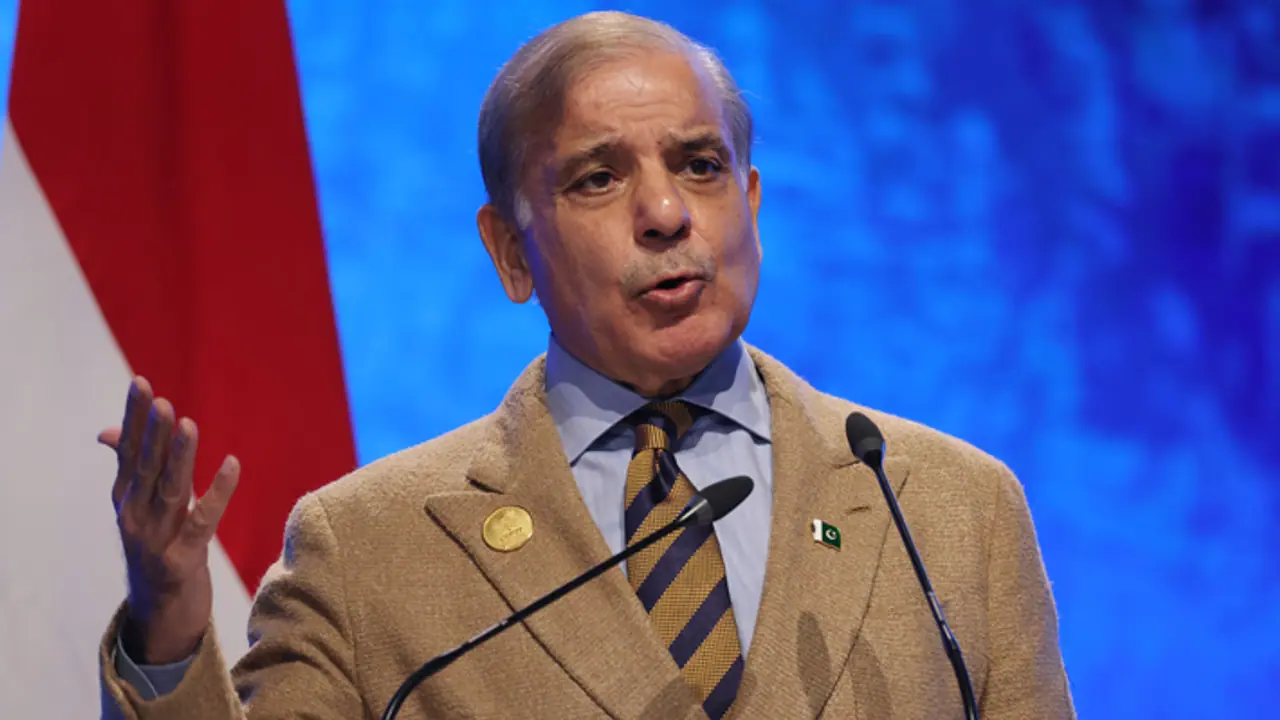Shehbaz Sharif has secured his return as Pakistan's prime minister for a second term, stepping into the position on Sunday after his brother opted out of pursuing a fourth term.
Shehbaz Sharif assumed the position of Prime Minister of Pakistan for a second term on Sunday, leading a coalition government after securing a comfortable majority in the newly-elected Parliament. At 72 years old, Shehbaz emerged as the consensus candidate of the Pakistan Muslim League-Nawaz (PML-N) and the Pakistan Peoples Party (PPP), garnering 201 votes out of 336 in the parliamentary house.

His opponent, Omar Ayub Khan from the Pakistan Tehreek-e-Insaf (PTI) party led by jailed former Prime Minister Imran Khan, secured 92 votes.
The inaugural session of the new parliament was marked by uproar and slogans from PTI-supported lawmakers. Shehbaz is scheduled to take the oath of office on Monday at the Presidential mansion, Aiwan-e-Sadr.
Previously, Shehbaz held the position of Prime Minister in a coalition government from April 2022 to August 2023, until Parliament was dissolved ahead of general elections.
Pakistan has been under a caretaker government during the interim period.
Despite his elder brother Nawaz Sharif winning a seat in the assembly and being the favored candidate for reinstatement, Shehbaz Sharif was nominated by his party and coalition allies to lead the South Asian nation.
Maryam, daughter of Nawaz Sharif, revealed in a post on X that her father opted against leading a minority coalition government, a departure from his previous stints where he enjoyed clear majorities as prime minister.
The Pakistan Muslim League-Nawaz (PML-N) party, led by the brothers, only secured 80 out of the 264 contested seats in the elections. However, with support from other parties, they managed to attain a majority.
In addition to stabilizing the coalition following Khan's removal in 2022, Shehbaz Sharif played a pivotal role in securing a last-minute bailout from the International Monetary Fund (IMF) for Pakistan last year.
Shehbaz Sharif reclaimed the prime ministerial position as the PML-N set aside its differences with the influential military, aligning against their shared adversary, Khan. Khan had been in disagreement with senior generals over policy matters, creating tension within the leadership ranks.
During the period, Nawaz Sharif remained in self-imposed exile in London and was barred from holding public office due to disqualification. His return to Pakistan occurred in October.
Before assuming the role of prime minister, Shehbaz Sharif was primarily recognized as an administrator rather than a politician, having served as chief minister of Punjab, the country's largest province, on three occasions.
Upon becoming prime minister, he swiftly embraced the role of mediator among coalition parties, often at odds over significant policy matters.
Shehbaz Sharif's most notable accomplishment during his brief tenure was securing an IMF bailout as Pakistan teetered on the brink of default. The agreement was finalized after Sharif personally met with IMF chief Kristalina Georgieva in June.
Nevertheless, under his administration, inflation surged to a peak of 38%, accompanied by significant depreciation of the Pakistani rupee, primarily due to structural reforms mandated by the IMF program aimed at stabilizing the economy.
Sharif attributes the economic downturn to Khan's government, accusing them of reneging on an agreement with the IMF just before his ousting. He contends that his government was compelled to implement numerous reforms and eliminate subsidies, resulting in the escalation of inflation.
Pakistan remains entrenched in an economic crisis, with inflation persisting at high levels, hovering around 30%, while economic growth has slowed to approximately 2%. In February, inflation experienced a slight decrease to 23.1% compared to the previous year, partially attributable to a high base effect.
Sharif faces the challenge of replicating his achievement in securing a short-term IMF bailout, as the current program is set to expire next month. A new extended agreement is crucial to steer Pakistan towards a path of recovery.
His primary responsibility includes maintaining relations with the military, which has wielded significant influence, directly or indirectly, since Pakistan's inception. Unlike his elder brother, who had a tumultuous relationship with the military during his three terms, Shehbaz Sharif is perceived as more agreeable and cooperative by analysts.
While the military denies political interference, it has intervened to overthrow civilian governments three times in the past. Since independence in 1947, no prime minister has completed a full five-year term.
The privatization of state-owned enterprises, such as the national airline, and attracting foreign investment are vital measures to alleviate the economic crisis. The Sharif family's close ties with leaders in Saudi Arabia and Qatar could facilitate investments in various projects Pakistan has recently promoted for sale.
Despite the military's influence on defense and key foreign policy decisions, Sharif must navigate relations with major allies like the US and China. Additionally, he must address strained relationships with three of Pakistan's four neighbors: India, Iran, and Afghanistan.
Born into a prosperous Kashmiri-origin family in Lahore, Shehbaz Sharif hailed from a steel business background. His political journey commenced as the chief minister of Punjab in 1997, marked by his distinctive "can-do" administrative approach.
Described by his cabinet members and bureaucrats as a workaholic, Sharif spearheaded numerous ambitious infrastructure projects during his tenure as chief minister, notably orchestrating Lahore's inaugural modern mass transport system.
His political trajectory intersected with national turmoil when his brother was deposed from the premiership in a 1999 military coup, leading Sharif into exile in Saudi Arabia.
Sharif's prominence on the national stage escalated when he assumed leadership of the PML-N following his elder brother's conviction in 2017 for concealing assets linked to the Panama Papers revelations.
Married twice, Shehbaz Sharif has two sons and two daughters from his first marriage, with only one son involved in politics, while the others remain outside the public sphere.
His second wife, Tehmina Durrani, gained renown as the author of "My Feudal Lord," an autobiographical account detailing her tumultuous marriage with a previous husband.
